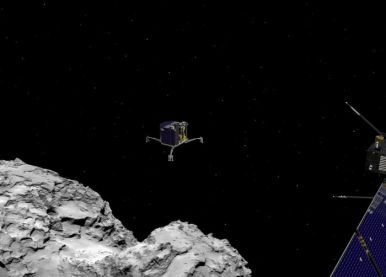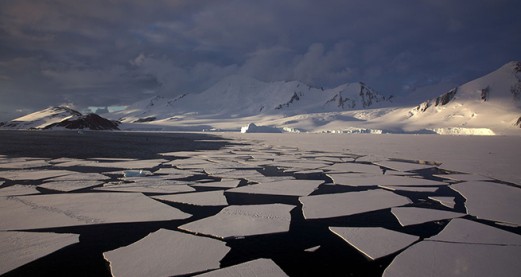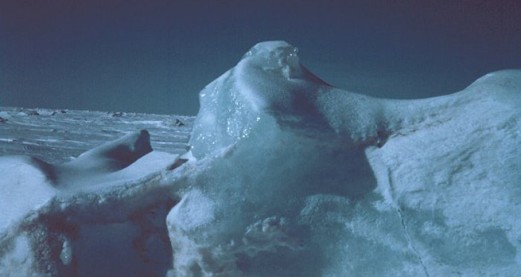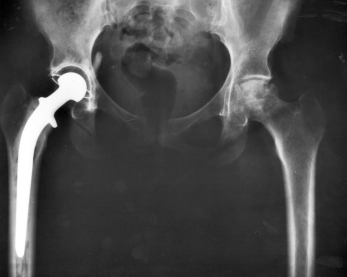![]() BBC Tomorrow's World has partnered with leading UK science institutions, including The Open University, to discover how our lives will be inspired and changed by science. To celebrate this, we've curated some of our most popular learning resources - from articles on whether robots should have rights, to explainers on how gene editing could improve our health in future, to OU research that's landed us on a comet - we've got it covered.
BBC Tomorrow's World has partnered with leading UK science institutions, including The Open University, to discover how our lives will be inspired and changed by science. To celebrate this, we've curated some of our most popular learning resources - from articles on whether robots should have rights, to explainers on how gene editing could improve our health in future, to OU research that's landed us on a comet - we've got it covered.
We're also co-producing a number of programmes with the BBC for Tomorrow's World, including Britain's Greatest Invention and Horizon: 10 Things You Need to Know about the Future. In the meantime, enjoy an abundance of FREE learning on the ever-changing world of science:
How is my life changing?
-
Beachbrains
Read now to access more details of BeachbrainsEver tried to picture how many neurons we have inside our brain but can't envisage it? Use this busy beach analogy to help you understand the brain:

-
Uncanny valley: why we find human-like robots and dolls so creepy
Read now to access more details of Uncanny valley: why we find human-like robots and dolls so creepyWhy do robots that look human (but not quite human enough) make us uncomfortable?

-
We might end up being looked after by robots. How do we prepare for that?
Watch now to access more details of We might end up being looked after by robots. How do we prepare for that?As old age approaches, Geoff Watts confronts an inevitable future in the care of robots. But that doesn’t mean he likes it.

-
A short history of the early days of artificial intelligence
Read now to access more details of A short history of the early days of artificial intelligenceArtificial Intelligence seems very much of our time - but as Jessica Riskin explains, history records many attempts to create machines that think.

-
What are the security risks of living in a Smart City?
Read now to access more details of What are the security risks of living in a Smart City?The internet of things brings numerous advantages as our towns and cities become smarter - but there are also security risks. Brian Nussbaum is reassured that we're already talking about the potential downsides.

-
Big data and bioinformatics: Powerful tools for decoding DNA
Read now to access more details of Big data and bioinformatics: Powerful tools for decoding DNAWith so many researchers all over the world producing information, is there a way for other scientists to look at large sets of results and use them to make new discoveries?

How is my world changing?
-
60 second adventures in microgravity
Watch now to access more details of 60 second adventures in microgravityWhat is microgravity, and how does it help science research? This series, funded by the UK Space Agency, explores how we recreate microgravity conditions on Earth, and why they are beneficial to scientific research.

-
What missing lander means for Europe’s quest to find life on Mars
Read now to access more details of What missing lander means for Europe’s quest to find life on MarsLoss of the Mars lander from its recent probe is disappointing, but the search for life on Mars goes on.

-
Why Rosetta is the greatest space mission of our lifetime
Read now to access more details of Why Rosetta is the greatest space mission of our lifetimeThe Rosetta mission is just what's needed to inspire future astronauts and space scientists, writes Dr Natalie Starkey.

-
Climate change
Learn more to access more details of Climate changeClimate change is a key issue on today's social and political agenda. This free course explores the basic science that underpins climate change and global warming.

-
Researching Antarctic ice sheets
Watch now to access more details of Researching Antarctic ice sheetsDr Tamsin Edwards discusses her research on climate change and the instability of Antarctic ice sheets.

-
Speed of Arctic changes defies scientists
Read now to access more details of Speed of Arctic changes defies scientistsThe Arctic climate is changing so quickly that science can barely keep track of what is happening and predict the global consequences, the UN says.

How is my health changing?
-
Rewriting DNA: An introduction to genome editing
Read now to access more details of Rewriting DNA: An introduction to genome editingWhy would scientists want to alter the DNA of organisms or cells? One OU Ph.D. student explains all you need to know about genome editing...

-
Targeted genome editing: Introducing the CRISPR/Cas9 system
Read now to access more details of Targeted genome editing: Introducing the CRISPR/Cas9 systemEver heard of CRISPR/Cas9? OU research student, Sonia Azeggagh, explains the impact of this genome editing technology on biology and medicine:

-
Investigating Links Between Pesticides and Mental Health
Read now to access more details of Investigating Links Between Pesticides and Mental HealthWhat are the links between mood disorders and a type of pesticide called Organophosphates? One OU PhD student explains their research...

-
Can computers be therapists?
Read now to access more details of Can computers be therapists?Can "e-therapies" be beneficial to those experiencing psychological issues, particularly young people? Dr Mathijs Lucassen looks at the evidence...

-
How are insect wings helping replace antibiotics?
Read now to access more details of How are insect wings helping replace antibiotics?Indian researchers have taken inspiration from nature to develop a way of protecting replacement hips and joints from infection - without the need for antibiotics.

-
Shift working – does it change how we think?
Read now to access more details of Shift working – does it change how we think?How does sleep deprivation and circadian rhythm affect shift workers' cognition? Emily Breese, a postgraduate student at The OU, explains the importance of her research on this:

Rate and Review
Rate this article
Review this article
Log into OpenLearn to leave reviews and join in the conversation.
Article reviews